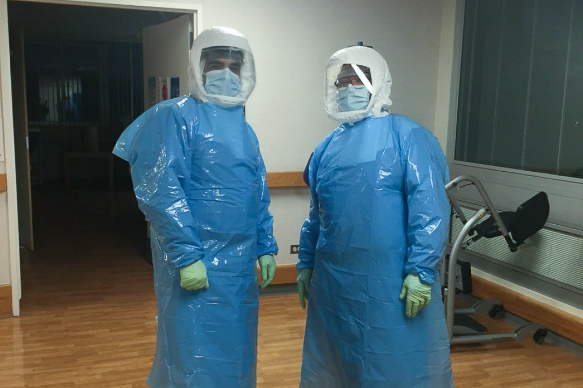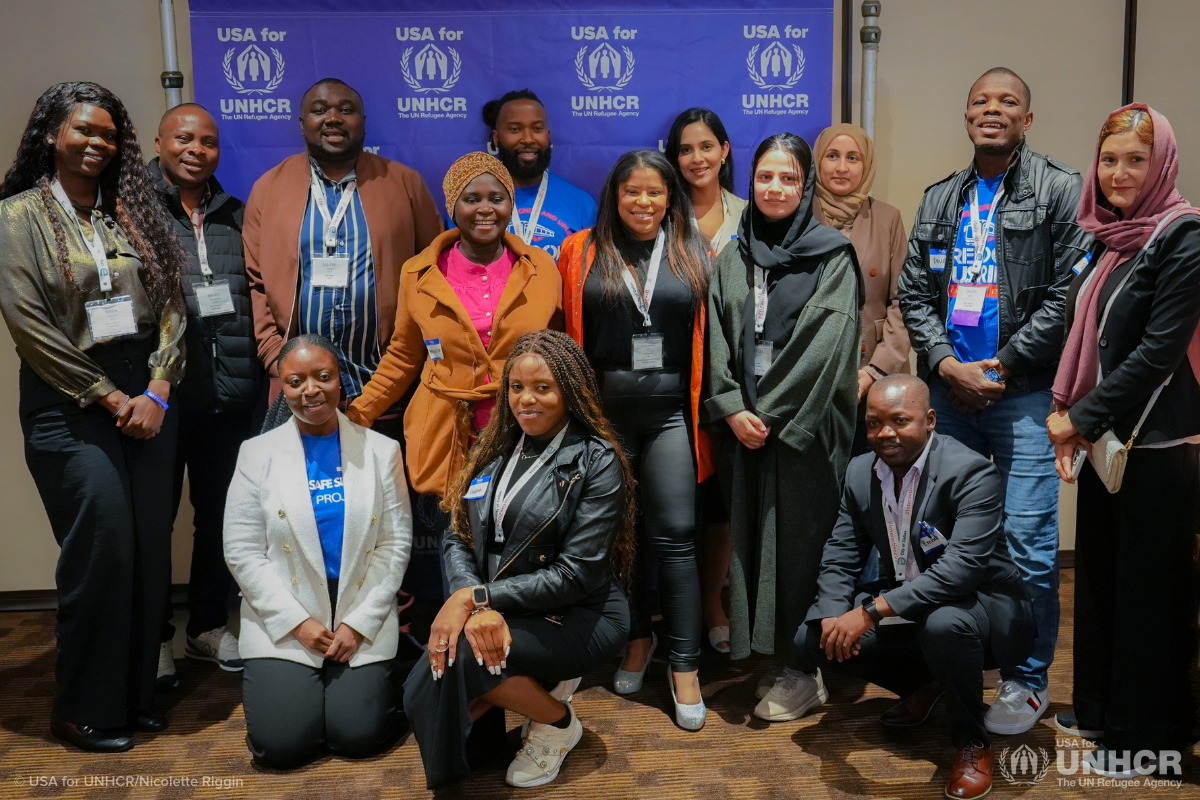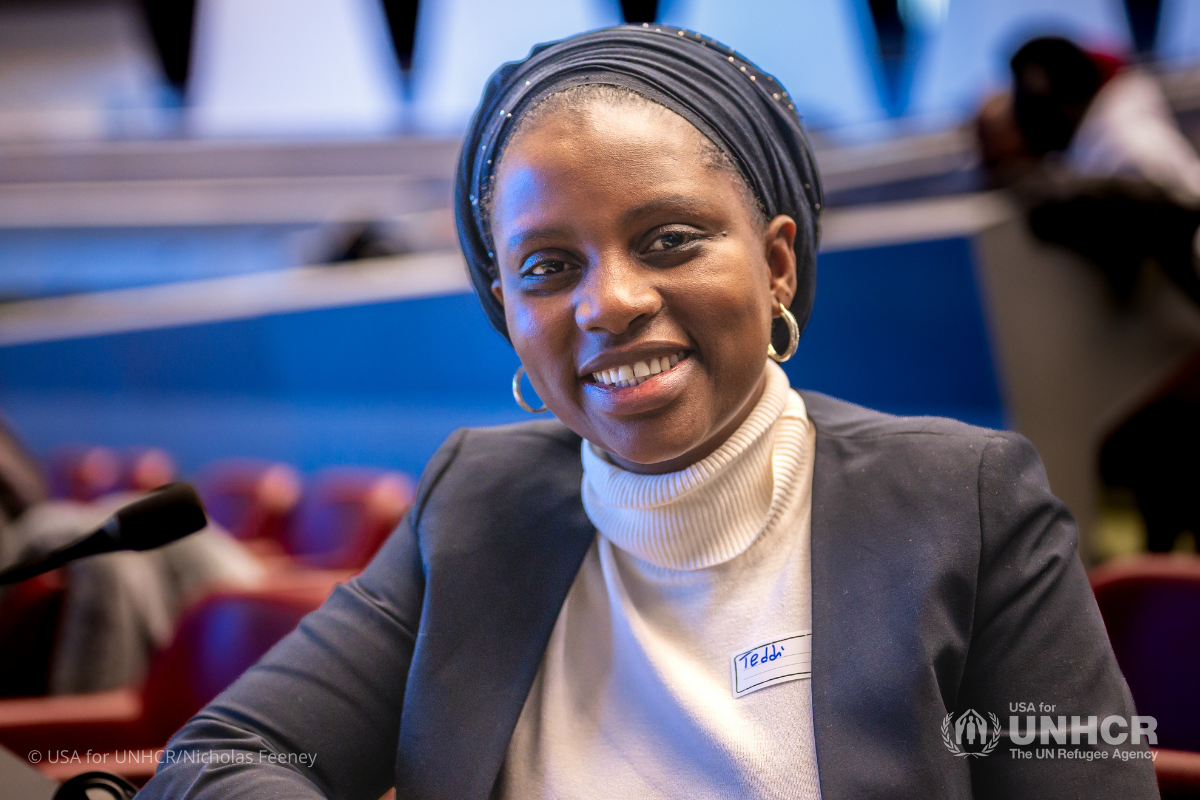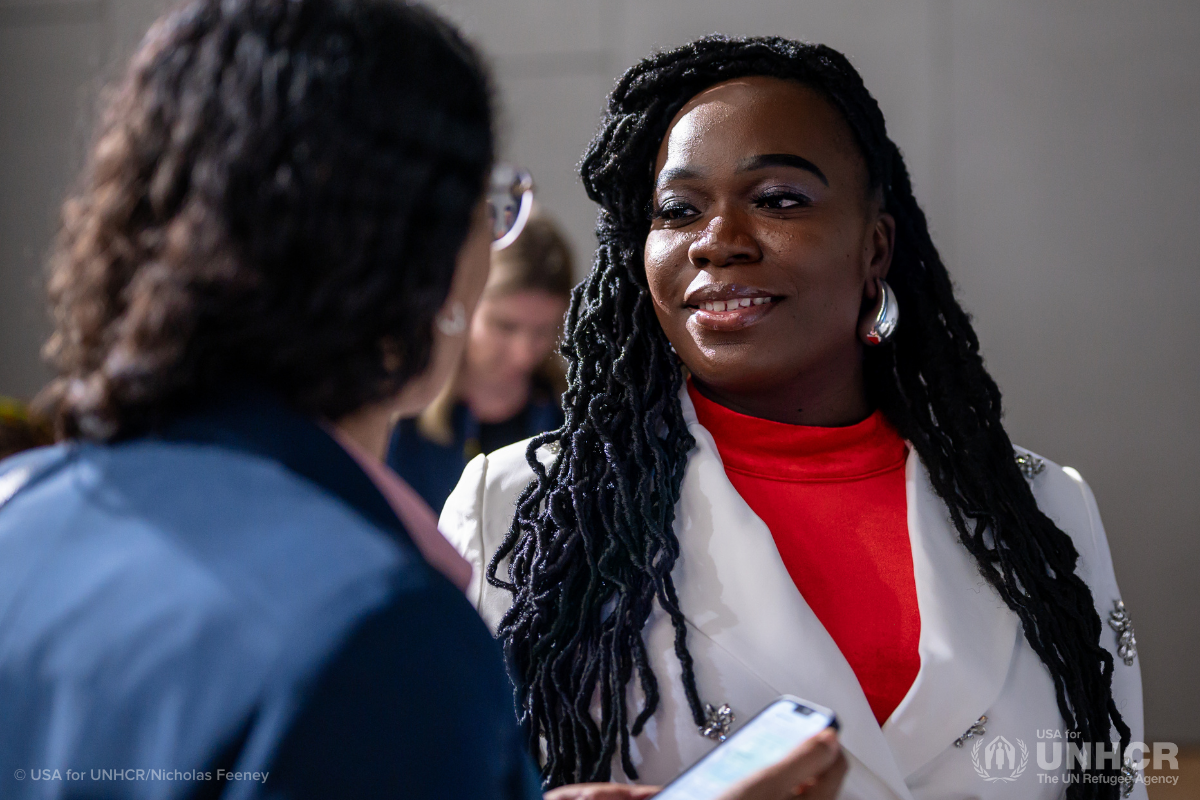A Syrian Refugee’s Unexpected Role on the Frontlines
A 40-year-old janitor with strong, dark features pushes a cart—a “gondola” as he calls it—down each floor in a Chicago-area hospital. Mohammed (whose name has been changed) picks up bags of soiled linens and garbage, stuffs them inside his cart, and rolls it into a large elevator to take the medical waste to the basement. Often, that elevator is simultaneously used by the autopsy service to transport a body to the morgue. Mohammed, a Syrian Kurd, is no stranger to suffering and death.
Mohammed’s long journey to work on the frontlines of the COVID-19 response began one decade ago in Aleppo, Syria, an ancient city whose destruction has now turned the very name Aleppo into a global axiom for savagery.
About a year after the civil war began in Syria in 2011, airstrikes ripped through his neighborhood. Mohammed and his wife Layla (whose name has been changed) lived in a state of near paralyzing fear. And then, the violence arrived on their doorstep. One night they heard aerial bombs and gunfire, and then watched in horror as the house next door was bombed and their neighbors died in the street.
“We scared for children!!” Layla told me. “There was no life!” With no way for Mohammed to continue earning a living as a shoemaker, he and Layla knew it was time to get out. They would escape separately.
They paid smugglers, or “guides,” to lead them to a place on the Turkish border that was unpatrolled by the Syrian army.
After collecting four thousand dollars from family, Mohammed went to Turkey first. He called his wife three months later when he was safe in Izmir with a job and a place to live. Layla escaped next with their two children, along with a friend and his family. They stuffed their lives into backpacks; each mother flipped the youngest child over a shoulder, all following the smuggler towards Turkey.
“Now. You go away,’” Layla recalled the smuggler’s harsh words as he abandoned them and took off in a different direction.
It was 5 a.m. They were close, about an hour’s walk away. They’d heard horrifying stories of broken bones, robbers, and death.
Fortunately, her border crossing was uneventful.
“[We] go inside [Turkey] and go in the street. A lot of car waiting, [taxis] for everyone, taking money.”
Mohammed, Layla, and their two children stayed in Izmir, Turkey, for five years. He could find work as a shoemaker, but they were not wanted there.
During their years in Izmir, Mohammed’s father’s olive orchard was destroyed during the conflict. I saw the photos on his iPhone. First, six hundred trees, a beautiful olive orchard on Syria’s northern rolling green hills—half the olives for eating, half for pressing into oil. Then he swiped left. The entire orchard was blackened and scorched. It looked like the surface of Mars.
Unable to go back to Syria, they filled out asylum papers.
“We register to U.N. and we interview,” said Layla, “and they say your paper will go to four or six countries. Which country will pick up you, we will come. After one year, they call us. America say okay.”
 (Mohammed, left, in full PPE on the frontlines of the COVID-19 response)
(Mohammed, left, in full PPE on the frontlines of the COVID-19 response)
On January 27, 2017, President Donald Trump issued an executive order banning refugees from Syria and six other predominantly Muslim countries. Mohammed and Layla arrived to O’Hare the very same day.
They were some of the last Syrians to arrive on American soil under the United States refugee resettlement program.
Refugee One, which partnered with my Glencoe, Illinois, synagogue Am Shalom, were there to greet Mohammed’s family. Shell-shocked, exhausted, and overwhelmed, the family piled into our van which headed to Skokie, a Chicago suburb. Refugee One had found an apartment and congregants fixed it up into move-in condition with furniture, rugs, clothing for everyone, and a lot of food, some of it already cooking on the stove.
No one knew what would come: not Mohammed’s job on a maintenance team in a hospital; and definitely not that job in the midst of a wildly escalating pandemic.
He texted a photo wearing double layers of lime green plastic gloves, and over medical scrubs, three layers of disposable blue plastic gowns, one with a hood; an anti-fog face shield; and protective eyeglasses with a side shield. He looked like a modern warrior: part astronaut, part avatar.
“Before, at start COVID-19, everybody is scared. I see COVID-19 patient coming. I fast go. Now, normal, no problem.” Mohammed shrugs, even laughs a bit. He is so unfazed.
Mohammed’s life remains an inspiration to me.
After escaping aerial bombardment and gross violations of human rights, he still chooses to be inside a hospital filled with pandemic sufferers.
“I go all [over] hospital. I see everywhere, ER, ICU, every floor covid. They don’t go outside their room. I listen,” and he did an impression of a patient coughing, in hacking, gasping, parched spurts, far apart. “Very dry cough. I am outside the room when the ventilator is turned off. I see people with no breath. I see people die.” He waited a beat. “Saddens me.” They are dying and can’t have any family members with them. “No. Nothing. Just patient.”
One day when Mohammed went into a patient’s room, a woman was suffering in bed.
“She was crying!” he emphasized that word. “Maybe 55 years old. I say, ‘Don’t be sad. You’ll be okay.’” He wore three masks to avoid inhaling what she exhaled, while he exchanged the used red sharps container on the wall for a clean, empty one.
Before COVID-19, I’d visit Mohammed and Layla’s apartment and watched over his shoulder as he scrolled through iPhone pictures: a happy, smiling family sitting on a bench, but also the crumbled stones of Aleppo’s Ancient Citadel, the twisted metal and rubble, and plumes of black smoke released from bombs dropped from the belly of a Syrian air force jet.
He kept the war in his pocket.
If I have learned one thing from him it is that hope comes in many forms. Although he apparently had a delightful childhood on his family’s farm, in America he’s inside a deathly pandemic.
“I don’t want to stay home,” he told me in a voice that had urgency. “I want to help. I am OK. I not connecting with patients. I strong person.”
“Aren’t—you—tired of this?!?” I asked.
“No, not tired of this. Here, a person [can] be careful. You wash everything, no problem. I know, don’t touch, no problem.”
Where does his resilience come from? I asked.
“All Kurdish people is like this,” Layla said. “They can go through anything!”
I asked Mohammed if he ever went to sleep scared?
“No!!” he said. Emphatically no. “Here, I come home every day, I stop thinking.” He sprays his shoes with disinfectant and leaves them outside the front door. “I take a shower. I sleep. In Syria, I no sleep.”
About the Author: Food zealot and journalist Peggy Wolff has published food features in the Chicago Tribune, L.A. Times, and dozens more; and has edited an award-winning food anthology Fried Walleye & Cherry Pie -- a grand culinary and cultural stew. Peggy Wolff is also a long-time supporter of refugees and a donor to USA for UNHCR.


